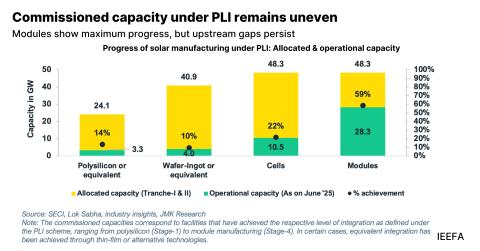By the Cleveland Plain Dealer Editorial Board
If you believe coincidence explains how the Statehouse works, there’s no mystery about the bureaucratic stall given to a $435,000 report on green energy jobs in Ohio. But you also have no sense of smell.
The Columbus Dispatch revealed Sunday that a report commissioned in 2012 by the state’s Development Services Agency, finished early in 2013, found Ohio had more than 31,000 “alternative energy economy jobs.” That’s 25 percent more than the 25,000 jobs that clean-energy proponents cited last spring in a losing fight to keep clean-energy standards on schedule.
The study was competitively bid to Virginia contractor ICF International; a federal grant covered much of the costs. (Wright State University was an ICF subcontractor). The report was finished in February 2013. Then, Development Services seemingly developed laryngitis. “[State agency] email about the report stops” after then, the Dispatch found.
Some 13 months later, last March, someone tipped the Dispatch to the report. The Dispatch requested a copy. Only then, the newspaper said, did state officials raise concerns about the ICF report’s research methods and conclusions.
Development Services has denied it was trying to hide anything. The agency, a spokeswoman said, “provided the document promptly to [the Dispatch] and others who requested it. The confusion may be between ‘release’ and ‘publicize.'”
Whoever splits hairs at Development Services has a very sharp blade.
The Dispatch reported, however, that while the state quickly provided the newspaper with a copy of the ICF report, not until June 13 did it fulfill the rest of the paper’s request for related records.
And another coincidence — June 13 was the date Republican Gov. John Kasich signed Substitute Senate Bill 310 that freezes, for 2015 and 2016, the phased-in efficiency, renewable and solar energy benchmarks Ohio law had scheduled for electric utilities.
Green-energy advocates called SB 310 a blow not just at the environment but also at Ohio’s emerging alternative energy industry. The “underpublicized” report could have underscored that industry’s size and jobs impact in Ohio.
Bureaucracies do make mistakes. And thanks to Kasich’s arm-twisting, SB 310 is a tad less damaging than it could have been. But that doesn’t make it good law. In fact, it’s law of the worst sort, with blinders on about Ohio’s innovation economy and its energy and manufacturing future.
The green-jobs report, in terms of what utility lobbies and their legislative pals want, was off-message. Keeping the report “underpublicized” may have been a coincidence. It was incontestably a convenience – to SB 310’s promoters.
This editorial was first published in the Nov. 20 edition of the Plain Dealer.














